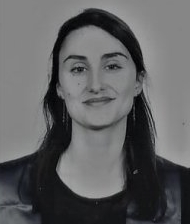Sheet of JANNOT Angèle

| Angele.Jannot@ube.fr |
- Presentation
- Current teaching
- Research topics
- Publications
- Summary of the thesis
ATER at IREDU, affiliated to INED (Institut national d’études démographiques) and CRESPPA-CSU (Centre de recherches sociologiques et politiques de Paris), where I did my dissertation, my research focuses on parents’ economic investments in their children during childhood. I combine three INSEE statistical surveys (‘Family budget’, ‘Use of time’ and ‘Assets’) with biographical interviews and an economic ethnography of family budgets to explore parental arrangements around educational practices, placing them in the context of gender and class relations.
Qualitative approaches to data analysis – Lectures, Master 2
Observation methods – Lectures, Licence 3
Statistics applied to the social sciences – Lectures and tutorials, Licence 2
Sociology of cultural practices – Lectures, Licence 2
Introduction to Sociology – Tutorials, Licence 1
Introduction to the sociology of education – Lectures, Licence 1
- General social sciences (sociology, anthropology, economics, demography)
- Economic ethnography: study of the domestic economy
- Sociology of the family and kinship
- Sociology of gender
- Stratification and construction of social inequalities
- Statistical and ethnographic methods
Articles in peer-reviewed journals:
2021
JANNOT Angèle, « Elle dépense, il(s) consomme(nt), il place, qui possède ? L’appropriation de la production domestique et de son surplus au sein des couples parentaux de sexe différent », Sociétés contemporaines, 2021/2 (N° 122), p. 155-187.
Book reviews :
2022
JANNOT Angèle, « MASCLET Olivier, AMOSSÉ Thomas, BERNARD Lise, CARTIER Marie, LECHIEN Marie-Hélène, SCHWARTZ Olivier, SIBLOT Jasmine, 2020, Être comme tout le monde. Employés et ouvriers dans la France contemporaine, Paris, Raisons d’agir, 480 p. », Population, 2022/2 (Vol. 77), p. 356-359.
2021
JANNOT Angèle, « COQUARD Benoît, 2019, Ceux qui restent. Faire sa vie dans les campagnes en déclin, Paris, La Découverte, SH, L’envers des faits, 216 p. », Population, 2021/1 (Vol. 76), p. 205-208.
2020
JANNOT Angèle, « DELPHY Christine, LÉONARD Diana, 2019, L’exploitation domestique, Paris, Éditions Syllepse, Féminismes et genre, 308 p. », Population, 2020/4 (Vol. 75), p. 626-628.
My thesis examines the mobilisation of economic resources by parents to provide the best living conditions for their children – during their childhood – and to guarantee their access to a valued social position in the future. It looks at parental economic investments, as seen through the division of educational labour, budgetary practices and the transmission of wealth, and asks how they contribute to the production of gender and class inequalities.
Three national statistical surveys (INSEE) – ‘Family Budget’, ‘Time Use’ and ‘Wealth’ – are combined with a qualitative survey of thirty-six families from a variety of social backgrounds, involving repeated interviews and spending diaries. This approach makes it possible to identify parental investment styles, shaped by the material conditions of existence, class cultures and marital histories.
This thesis demonstrates how the material conditions of life influence educational styles and asks to what extent these styles deviate from dominant educational norms. It points out that all families invest time and money in their children’s future, but that the timing and diversification of these investments vary. Mothers and fathers do not play the same roles in these investments, so the costs and benefits are unevenly distributed. By analysing the economic arrangements of spouses according to their socio-economic position, this research shows how the sexual division of labour is transposed into an unequal distribution of wealth.
Key words: family, childhood, gender, social classes, domestic economy, economic inequalities, intra-family inequalities.